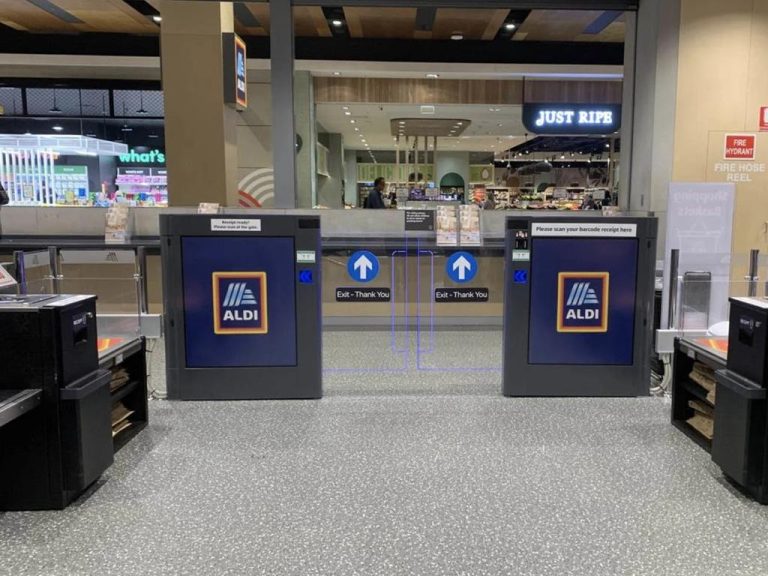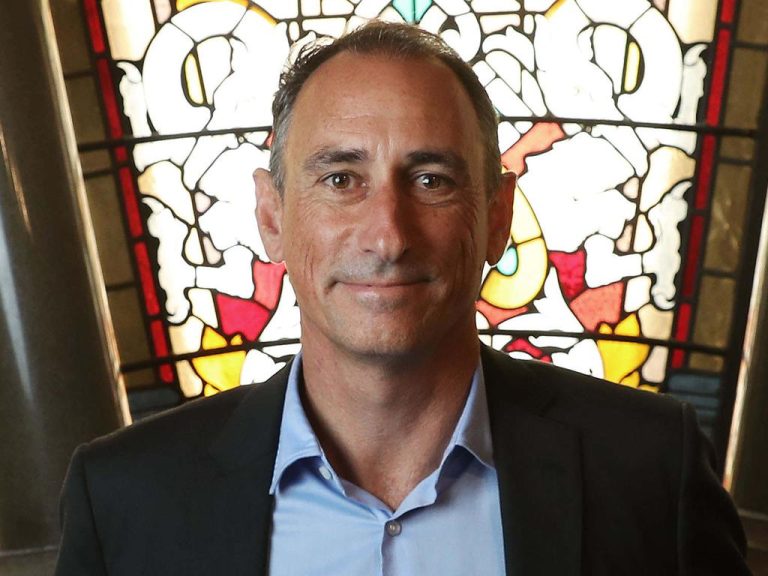Retail renaissance: Superannuation funds go shopping
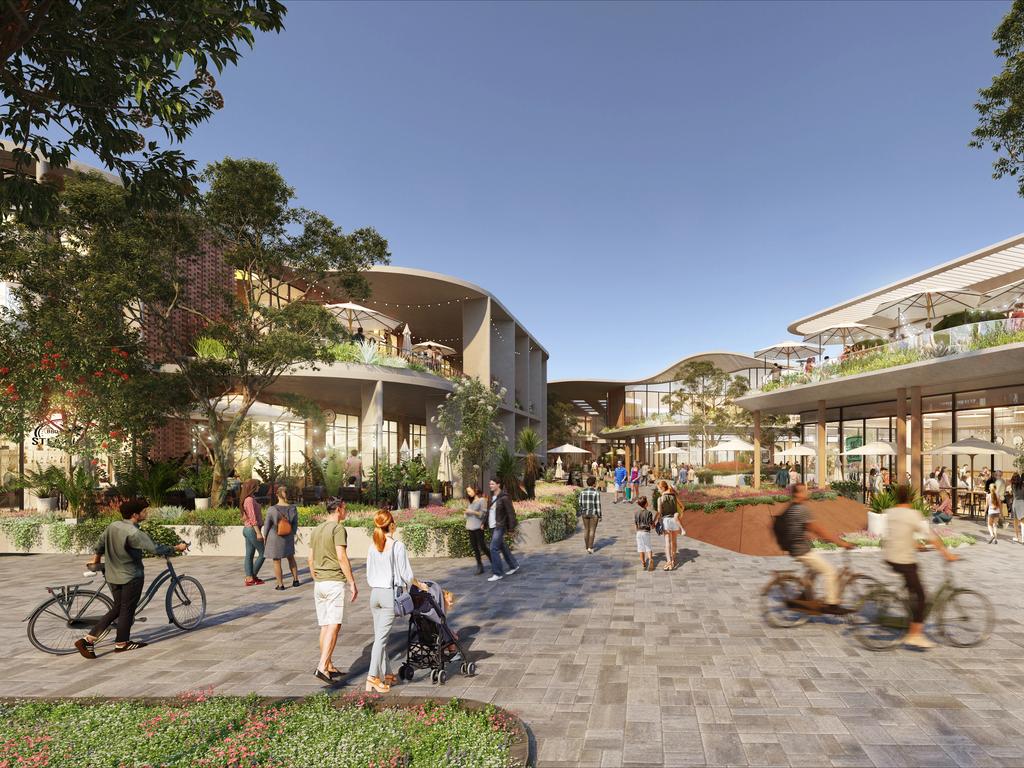
An artist’s impression of Scentre Group’s plans for Westfield Booragoon.
Big superannuation funds are back in retail property. After suffering through lean years in what had once been a favoured asset class, they are willing to spend again.
The funds are buying at a time when the listed players are, in the main, out of the market. And vendors are showing that they are willing to meet the new breed of buyers.
In one of the latest plays, superannuation giant Aware Real Estate, via its property mandate with Altis Property Partners, has snapped up a stake in a $130m centre in Melbourne’s western suburbs.
In keeping with the trends sweeping retail, it is not just the existing shopping centre that grabbed its attention. There are also development plans that show where the real value lies. This goes not just for the now in vogue subregional shopping centres, but also for their larger cousins, the regional centres, which are also being overhauled.
These projects offer a guide to the future of retail and how older assets will be transformed into truly mixed-use enterprises. The big leaders on the mixed-use front are listed players.
Just this month, Vicinity Centres won approval for a mixed-use project in Brisbane. And the owner of the local Westfield empire, Scentre, has been active, unveiling expansion plans in Perth and flagging an office project in Canberra.
The uplift in activity comes as retail is the sector showing good signs of liquidity in an otherwise tough commercial property market.
In the Melbourne deal, Challenger and a Middle Eastern client sold the half stake in Sunshine Marketplace. Struck on a 5.97 per cent market yield, it shows investors are chasing retail assets with development upside. The centre, half-owned and managed by Vicinity, sits in an area earmarked as one of the city’s major activity zones.
The 34,000sq m centre is anchored by Woolworths, Big W and Village Cinemas, and is almost fully occupied. But the 12.2ha holding includes development plans for 190,578sq m of mixed-use projects, which were the real drawcards.
“The transaction is consistent with Aware Real Estate’s focused investment strategy to target locations around existing and new infrastructure that we believe will drive long-term demand underpinning capital growth,” Aware Real Estate chief executive Michelle McNally said.
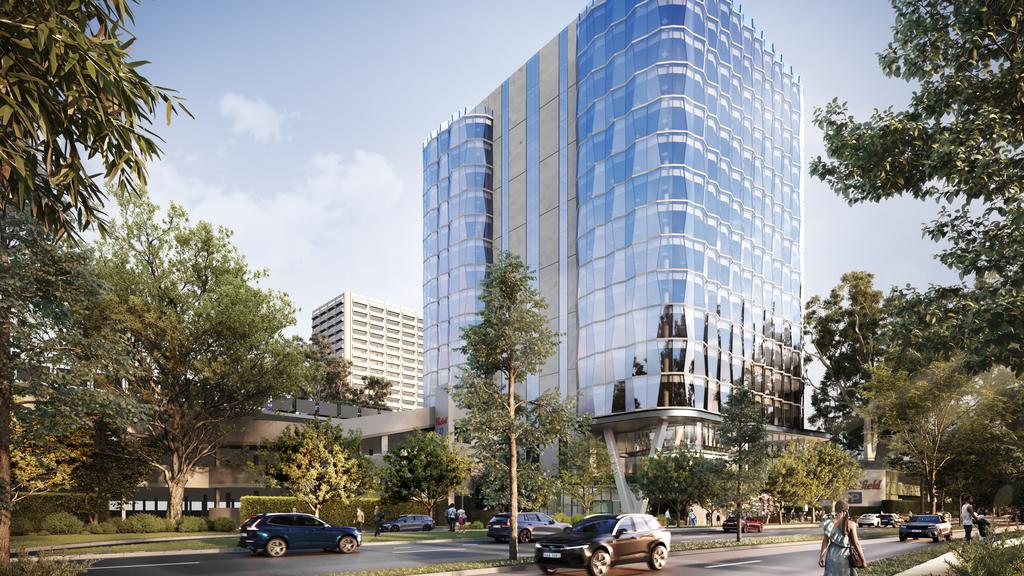
Artists impression of a tower proposed by Scentre on the Bonner House site, near Westfield Woden in the ACT.
JLL’s Nick Willis and Sam Hatcher brokered the deal. Mr Willis pointed to the growing trend of super funds re-entering the retail sector via direct ownership stakes.
“This ownership structure provides increased control and flexibility to execute on the large-scale mixed-use development opportunities these assets provide,” Mr Willis said.
The move comes after super funds poured more than $2bn into retail properties in the past two years. Notably, heavyweights UniSuper and Cbus Property stumped up for a $2.2bn investment in the Gold Coast’s Pacific Fair and Sydney’s Macquarie Centre in late 2021.
But since that time open-ended retail funds, which have been under pressure from investors to meet redemptions, have been making sales. While some of these pressures remain, the market is now well and truly open.
Mr Hatcher said traditional retail owners who used leverage to bolster overall returns to their investors had faced challenges in the rising interest rate environment. But he said he sensed a switch.
“There is an increased appetite from the likes of super funds, and capital with strong balance sheets, as they can outperform on lower-yielding assets in the current environment, gaining access to opportunities that otherwise would not be available,” Mr Hatcher said.
The key is the additional income streams. At Sunshine, an entertainment and leisure precinct is already on the way and there are plans afoot for an 84-key service apartment complex and, in time, 10-storey offices.
Mr Willis said the asset drew 10 bids. “The depth of interest ranged from traditional retail owners, offshore capital and local property developers who all identified the benefit in partnering with Vicinity as a best-in-class retail manager whilst working together on the future development of the asset,” Mr Willis said.
Other players are revamping their centres. Last week, Vicinity won approval from Brisbane City Council to redevelop Buranda Village into a mixed-use precinct. The company’s general manager, mixed-use development, Truman Dare, said the project unlocked more than 105,000sq m of space. It will sport more than 620 apartments and three towers for health services and offices, and a new lifestyle precinct. Vicinity’s pipeline also includes projects at Sydney’s Bankstown and Melbourne’s Box Hill. But there are no quick fixes.
“The development plans for Buranda Village are the result of over two years of careful planning and research to ensure the project best meets the needs of the community, today and in the future,” Mr Dare said.
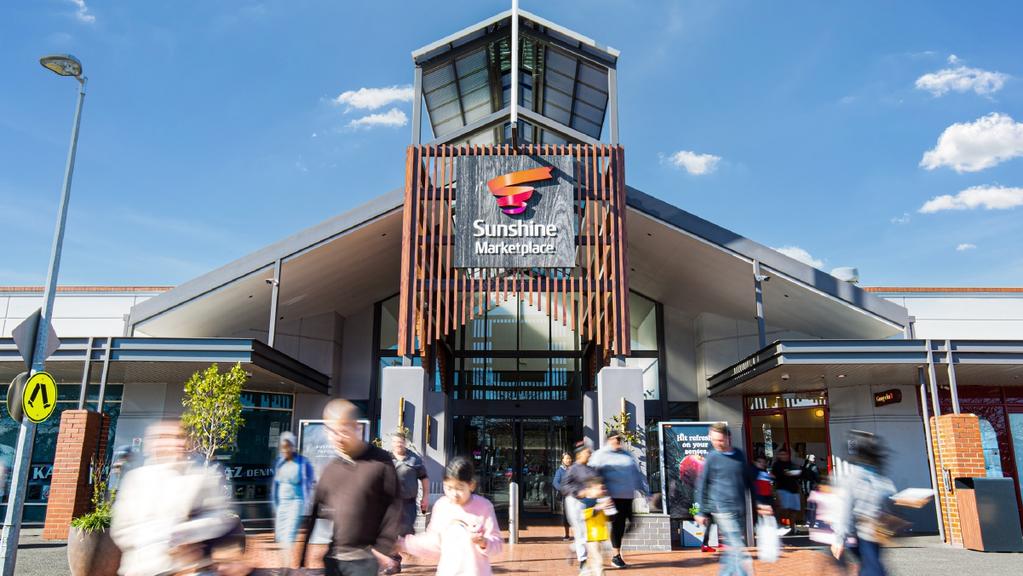
Aware Real Estate has bought a 50 per cent stake in the Sunshine Marketplace Shopping Centre in Melbourne.
In Canberra, Scentre has plans for the Bonner House site, near Westfield Woden. It will develop a 25,000sq m, 16-storey tower with access to the centre and a dining precinct.
“It may include hotel, childcare and premium office accommodation with world class end-of-trip facilities,” Scentre director of development Stewart White said.
In Perth, Scentre and partner Dexus Wholesale Property Fund have just won approval for a full retail masterplan for Westfield Booragoon. The $792m expansion would make it the city’s largest, hitting 114,620sq m and including a new entertainment and lifestyle precinct, along with a new High Street.
The move is a sign of Scentre’s confidence in big retail as it owns and runs four centres in Perth, with DWPF fund manager Michael Sheffield saying the development will reposition the centre as “best in class” for retail.
Landlords are striking on the back of higher spending. Charter Hall chief executive, retail, Ben Ellis told a Brisbane panel last week there had been a resurgence of spending post-Covid and investors would focus on income growth as conditions shifted.
“There’s no doubt that increasing interest rates and the pressure on household budgets is something to be mindful of and to that end, as owners of retail real estate, we need to be very cautious about where we are putting in money, what we are investing in and where we think those pockets of volatility will be,” Mr Ellis said.
Tenants are still keen. Consolidated Properties boss Don O’Rorke said leases were still being signed across the operation’s six neighbourhood centres.
“The feedback we’re getting is that institutional capital … are still having difficulties pricing with volatility in the interest rates. What is the cost of capital and what is therefore the correct yield that we should apply to that particular centre?” Mr O’Rorke said.
The developer says rents will rise. “For us to get a new centre under way, we have to get higher rents because the yields certainly have been softening,” he said. “Rents, in theory, should increase because inflation is pushing up the cost of the goods. So the theory is everything sort of shifts up.”
With values being reset, the challenge is on for the industry to find the model for success in retail property.

